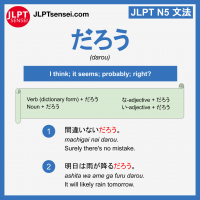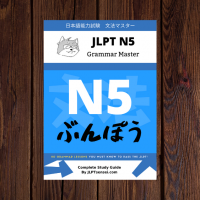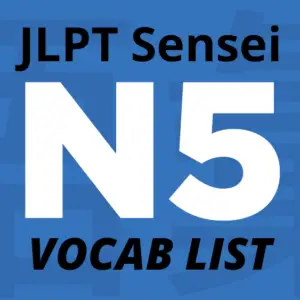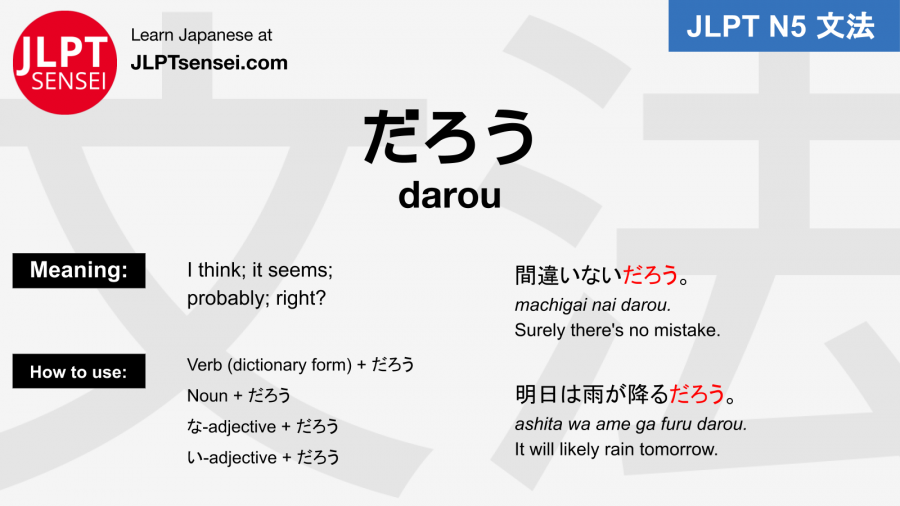Aprende gramática del idioma Japonés: だろう (darou). Significado: I think; it seems; probably; right?
Although there are many different meanings, which may seem confusing, it is usually easy to understand from context. Let’s look at some basic examples.
BTW, sometimes this grammar is shortened to just だろ (daro), but the meaning is the same.
Example A)
嘘だろう。
uso darou.
You’re kidding (surely that’s a lie)
That’s a lie, right?
This method can express either confidence that it is likely a lie, or express that you are asking for confirmation, though it depends on the tone of the speaker and the situation.
Example 2)
雨が降るだろう。
ame ga furu darou.
It seems like it’s going to rain.
I think it’s going to rain.
Like the previous example, the meaning changes depending on the speaker’s tone and the situation. When spoken in a questioning type of tone, it is asking for confirmation from whoever the speaker is talking to. Otherwise, it expresses what the speaker is thinking; in this case thinking that it is likely to rain.
Used with questions
Example C) showing speculation
それは何だろう。
sore wa nan darou?
I wonder what that is..

Click the image to download the flashcard.
Download all N5 grammar flashcards.

Download our complete
JLPT N5 Grammar Master E-book.
Access ALL extra downloads, ebooks, and study guides by supporting JLPT Sensei on Patreon.
だろう - Oraciones de ejemplos 例文
Cada oración de ejemplo incluye ayudas como la lectura (hiragana) en Japónes, la lectura en romaji, y la traducción en Español.
Da clic en el siguiente botón rojo para alternar todas las ayudas, o puedes dar clic en los botones individuales para mostrar únicamente las que desees ver.
Ejemplo #1
彼はもうすぐ来るだろう。
Ejemplo #2
そうだろうと思ったよ。
Ejemplo #3
明日はたぶん雨が降るだろう。空に雲がたくさんあるから。
Ejemplo #4
間違いないだろう。
Ejemplo #5
たぶんこの雨は1時間ぐらいでやむだろう。
Ejemplo #6
あそこにいる人は誰だろう。
Ejemplo #7
この肉は、もう食べないほうがいいだろう。もう悪くなってしまった。
Ejemplo #8
どうして日本の夏はこんなに暑いんだろう。
Vocabulario 語彙
| Kanji 漢字 |
Kana カナ |
English 英語 |
|---|---|---|
| 嘘 | うそ | lie |
| 雨 | あめ | rain |
| 降る | ふる | to fall |
| 雨が降る | あめがふる | to rain |
| 新しい | あたらしい | new |
| かっこいい | cool | |
| 先生 | せんせい | teacher |
| 来る | くる | to come |
| 思う | おもう | to think |
| 間違い | まちがい | mistake |
Ver todas las lecciones de gramática del JLPT N5



